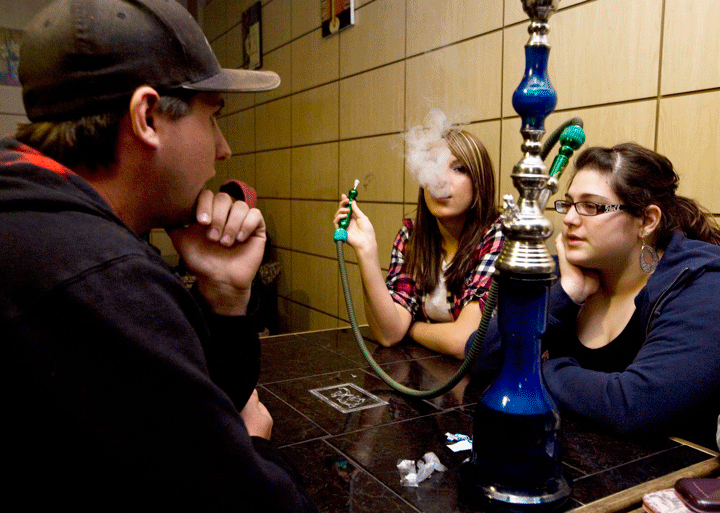TORONTO — Bars and restaurants that allow the use of hookahs may soon face a citywide ban.

Toronto’s licensing and standards committee met on Thursday to debate the possibility of banning hookahs from licensed establishments.
The report recommends provisions that prohibit anyone from using a hookah in any premises or vehicles in the city.
The committee debate ended in a split vote and will now be brought to city council without recommendations.
Councillor Glenn De Baeremaeker was one of those in favour of the hookah ban.
“100 per cent hookah smoking should be banned, just like all smoking,” De Baeremaeker said.
“Whether you smoke with a cigar, or you smoke with a pipe, or you smoke with a cigarette, or you smoke with a hookah pipe, it’s still smoking and it should all be banned.”
De Baeremaeker added that the “toxic chemicals” from hookah smoking remain in the bar, the same as they would for a cigarette.
There are more than 60 businesses in Toronto that allow the use of hookahs.
Dr. David McKeown, the city’s chief medical officer of health, said there are toxic properties in hookah that could pose a risk to users similar to cigarettes.
“What we’ve learned from looking at scientific studies of hookah users … the toxins that are inhaled are hazardous to health and have similar effects to other kinds of air pollutants or tobacco smoking, in that they can cause respiratory disease, they can cause heart disease,” McKeown said.
“What’s concerning is that using hookah has gone from beyond being a practice – a social practice in some parts of the world and groups in Toronto – to something that has become trendy for young people who have no tradition.”
McKeown said that after surveying high school students the city found that about 10 per cent said they had smoked hookahs.
“It’s a growing phenomenon among young people and this is a concern because of the health impact,” he said, adding that there are also second-hand smoke concerns for those who work in establishments that allow hookahs.
“There was a recent study done by the Ontario Tobacco research unit which measured the air quality in a number of premises here in Toronto and found hazardous levels of small particles – carbon monoxide, heavy metals and other hazardous substances in the air,” he said.
“So for someone who works in a premises like this and is spending eight hours breathing the air, we are very concerned of the health implications.”
In contrast, rules against the use of cigarettes in enclosed spaces have gotten progressively tighter.
In 1999, Toronto bars, restaurants and other establishments were mandated to have designated smoking sections occupying a maximum of 25 per cent of floor space, according to Statistics Canada.
In June 2001, smoking was banned in restaurants and bowling alleys, but designated smoking rooms were still allowed.
Three years later, smoking was banned in all public places, but smoking sections were permitted in restaurants, bars, billiard halls, bowling alleys, casinos and bingo halls.
It wasn’t until May 2006 when the Smoke Free Ontario Act was put in place, which prohibited in all enclosed workplaces and public places.
“There have been progressive tobacco regulations since the late 1970s in Toronto … what we learned from that experience is that most effective and most health-protective measures are those which prevent exposure occurring entirely,” said McKeown.
“So when it comes to hookah, I think that might as well skip those ineffective partial measures and go directly to what we know will actually be the most effective way of addressing the health issue and that is prohibition.”
De Baeremaeker said that when smoking bans were first put in place, many restaurant owners were resistant to the change.
“They all said the same thing: we will go bankrupt because smoking generates most of our customers, smoking generates most of our money so we will all go bankrupt. But not one person today could point to one single restaurant that went bankrupt because of the no smoking bylaw,” he said.
“If you have a cafe and people come to smoke their hookah pipe and you stop that, they’ll still keep coming, you’ll still make lots of money. You just have to be nice to them and serve them good food.”
The hookah debate will be brought to city council on Nov. 3.




Comments